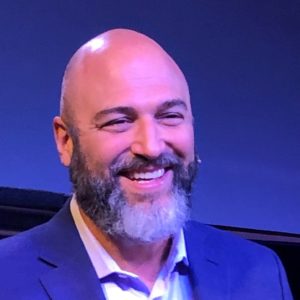Secrets of Aging: Keep moving
One of the greatest inspirations for living a healthy and happy seniorhood doesn’t come from a long-term care association, a state initiative or a federal aging agency. It comes from Dick Van Dyke, who turns 90 in December. His new book, Keep Moving: And Other Tips and Truths About Aging, is not about his legendary career on the stage and the silver screen. It’s his personal sharing about living as an older adult—including the importance of staying active, finding joy in creativity and purpose, embracing life’s curveballs and refusing to “act your age.”
Rather than giving shallow advice such as “exercise and enjoy life,” Van Dyke dives deep into the crucial and often difficult tasks of senior connectedness, talking about the importance of making new friendships over the decades while maintaining current ones, forcing yourself to push beyond yesterday’s physical abilities, and finding at least one thing to be happy about each day, even if it’s just a trip to a grocery store.
“I don't think about the way I am supposed to act at my age—or at any age,” he writes. “As far as I know, there is no manual for old age. There is no test you have to pass. There is no way you have to behave. There is no such thing as ‘age appropriate.’"
In an interview this week with Canada’s CBC Radio’s “Q” host Shadrach Kabango, Van Dyke talked frankly about the realities of living into his 80s and beyond, including how attitude and ability can both help and counteract each other. Just because mobility may become an obstacle doesn’t mean seniors should stop trying, he notes. “Do whatever exercise you can, whenever you can,” he insisted.
Van Dyke’s connection between exercise and seniors’ physical/mental health is echoed by numerous scientific studies stressing the importance of exercise to the aging body and mind. He himself received a diagnosis of body-wide arthritis in his 40s—somber news for a professional dancer and actor—but he chose to use exercise as a way to prevent the condition from worsening. Fifty years later, “I still have arthritis and all the other conditions consummate with my age, but I just keep moving,” he said in the CBC Radio interview. “Keep the blood moving in your veins and your brain.”
Over time, he told Kabango, “My motivations have changed. In my 30s, I exercised to look good. In my 50s, I exercised to stay fit. In my 70s, I did it to stay ambulatory. In my 80s, I did it to avoid assisted living. I think in my 90s, it’s just going to be complete defiance.”
[Just an FYI to skilled nursing operators and caregivers: This is the new body of seniors you are inheriting soon, or who may be among your census already. Are your activities programming and physical/occupational services keeping up with their changing views of themselves and their aging processes? How are you enticing other residents to adopt similar attitudes?]
What’s the hardest part about being his age? “Losing friends—So many of my contemporaries are gone,” Van Dyke soberly told Kabango. “When you live into your 90s, you look back and see the roads not taken, and I don’t have anyone to talk to about it.” But, as he crosses into his 90s, he added, “I’m literally having a third life now, and I’m having more fun than I ever did.”
And when it comes to the subject of death, Van Dyke keeps his famous humor in his message: “I know that at this time of life, you can cork off at any moment. But I really never think about it.”
To hear the entire Van Dyke interview on CBC Radio, click here.

Pamela Tabar was editor-in-chief of I Advance Senior Care from 2013-2018. She has worked as a writer and editor for healthcare business media since 1998, including as News Editor of Healthcare Informatics. She has a master’s degree in journalism from Kent State University and a master’s degree in English from the University of York, England.
Related Articles
Topics: Leadership










